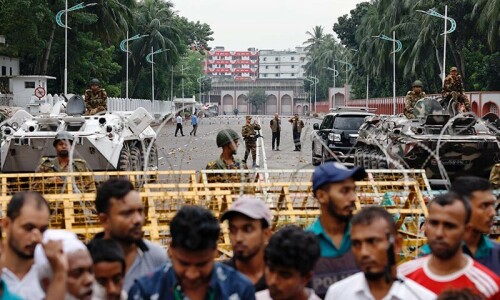THE ILO has launched its Better Work Programme in Pakistan for improving working conditions in the textile industry and ensuring compliance with international labour laws to help local companies compete globally. The programme will also help ensure that local textile companies provide a safe and healthy environment for their workers and allow the strengthening of labour unions and workers’ organisations within the industry. Around 4.2m people are employed in the garments, textiles and footwear sector, according to an ILO report for 2014-2015. The textile sector as a whole contributes 8.5pc to GDP and accounts for 70pc of total exports. However, according to Human Rights Watch, most workers in Pakistan’s textile industry are unregulated or are not given written contracts and are forced to work overtime in harsh conditions without being given adequate leave in case of sickness. Moreover, they are routinely denied social security, wages and other benefits.
The report also highlighted the role of private textile companies in suppressing the activities of workers’ unions that campaign for employees’ rights and the government’s negligence in allowing these companies to violate existing labour laws. Pakistan is a signatory to several international covenants on workers’ rights and has a number of laws in place for their protection. However, the gaps in the laws themselves and negligence with regard to their implementation have resulted in worsening conditions for Pakistan’s largely unregulated labour force. It has also resulted in the pulling out of international businesses, such as Walt Disney, which ceased doing business with Pakistan in 2014 on account of poor working conditions. According to the Global Slavery Index report, 2018, Pakistan ranks third out of 167 countries in terms of having the highest number of victims of ‘modern slavery’ — 3.19m. Even deadly incidents like Karachi’s Baldia factory fire have failed to result in greater protection for millions of workers. Let’s hope that the BWP convinces both government and industrialists that progress in trade cannot come without uplifting labour conditions in the country.
Published in Dawn, October 26th, 2019











































